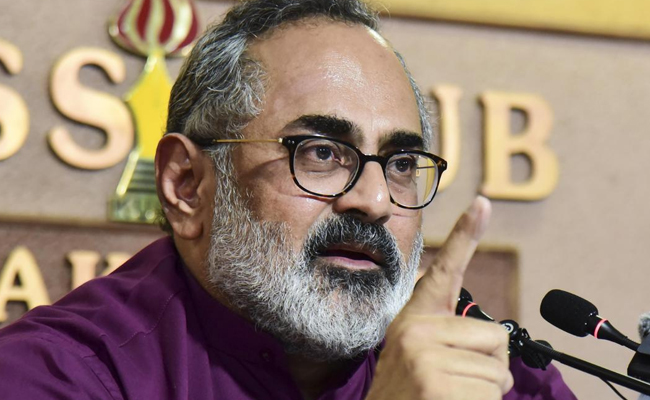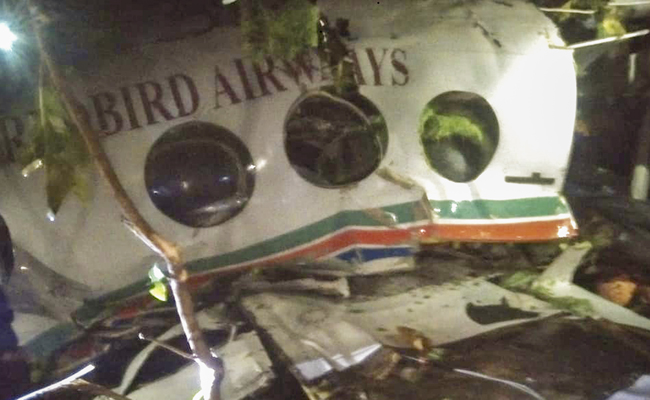New Delhi, Aug 6: Tokyo Games bronze medallist wrestler Bajrang Punia on Tuesday described fellow grappler Vinesh Phogat as the "lioness of India" after she entered her maiden Olympic semifinals after notching up stunning victories in Paris.
The 29-year-old Vinesh stunned defending champion Yui Susaki of Japan and higher-ranked Ukrainian Oksana Livach to cruise to the women's 50kg semifinals on Tuesday.
"Vinesh Phogat is the lioness of India who won back to back matches today. Defeated 4-time World Champion and defending Olympic champion. After that she defeated the former World Champion in the quarterfinals," Punia wrote on his 'X' handle.
Punia, Vinesh and Sakshi Malik had led a long sit-in protest in Delhi early last year against alleged sexual harassment of women wrestlers by former Wrestling Federation of India chief Brij Bhushan Sharan Singh.
"But let me tell you one thing. This girl was kicked and crushed in her own country
This girl was dragged on the streets in her country. This girl is going to conquer the world but she lost to the system in this country."
Vinesh defeated Livach, a former European champion and 2018 world championship bronze-medallist, 7-5 in a hard-fought quarterfinal bout to get closer to an elusive Olympic medal in her third attempt.
This was after she caused the biggest wrestling upset in the ongoing Games when she shocked four-time world champion and reigning gold-medallist Yui Susaki of Japan on points in the pre-quarterfinals.
Later in the evening, Vinesh will be up against Cuba's Yusneylis Guzman Lopez in the last-four stage. A win will assure her of at least a silver while a loss will take her into the bronze medal playoff.
Vinesh had failed to win a medal in her two previous Olympic appearances. She has won two bronze medals in 53kg in World Championships in 2019 and 2022.
विनेश फोगाट भारत की वो शेरनी जिसने आज बैक टू बैक मैच में
— Bajrang Punia 🇮🇳 (@BajrangPunia) August 6, 2024
4 बार की World Champion और मौजूदा ओलंपिक चैंपियन को हराया
उसके बाद क्वार्टरफाइनल में पूर्व World Champion को हराया
मगर एक बात बताऊं,
ये लड़की अपने देश में लातों से कुचली गई थी
ये लड़की अपने देश में सड़कों पर घसीटी गई…
Let the Truth be known. If you read VB and like VB, please be a VB Supporter and Help us deliver the Truth to one and all.
Judge cites denial of home to Muslim girl, opposition to Dalit women cooking mid-day meals
Hyderabad, February 23, 2026: Supreme Court judge Justice Ujjal Bhuyan has said that despite repeated affirmations of constitutional morality by courts, deep societal faultlines rooted in caste and religious discrimination continue to shape everyday realities in India.
Speaking at a seminar on “Constitutional Morality and the Role of District Judiciary” organised by the Telangana Judges Association and the Telangana State Judicial Academy in Hyderabad, Justice Bhuyan reflected on the gap between constitutional ideals and social practices.
He cited a recent instance involving his daughter’s friend, a PhD scholar at a private university in Noida, who was denied accommodation in South Delhi after her surname revealed her Muslim identity. According to Justice Bhuyan, the landlady bluntly informed her that no accommodation was available once her religious background became known.
In another example from Odisha, he referred to resistance by some parents to the government’s mid-day meal programme because the food was prepared by Dalit women employed as cooks. He noted that some parents had objected aggressively and refused to allow their children to consume meals cooked by members of the Scheduled Caste community.
Describing these incidents as “the tip of the iceberg,” Justice Bhuyan said they reveal how far society remains from the benchmark of constitutional morality even 75 years into the Republic. He observed that while the Constitution lays down standards of equality and dignity, the morality practised within homes and communities often diverges sharply from those values.
He emphasised that constitutional morality requires governance through the rule of law rather than the rule of popular opinion. Referring to the evolution of the doctrine through judicial decisions, he cited Naz Foundation v Union of India, in which the Delhi High Court read down Section 377 of the Indian Penal Code, holding that popular morality cannot restrict fundamental rights under Article 21. Though the judgment was later overturned in Suresh Kumar Koushal v Naz Foundation, the Supreme Court ultimately restored and expanded the principle in Navtej Singh Johar v Union of India, affirming that constitutional morality must prevail over majoritarian views.
“In our constitutional scheme, it is the constitutionality of the issue before the court that is relevant, not the dominant or popular view,” he said.
Justice Bhuyan also addressed the functioning of the district judiciary, underlining that trial courts are the first point of contact for most litigants and form the foundation of the justice delivery system. He stressed that due importance must be given to the recording of evidence and adjudication of bail matters.
Highlighting the role of High Courts, he said their supervisory jurisdiction under Article 227 of the Constitution is intended as a shield to correct grave jurisdictional errors, not as a mechanism to substitute the discretion or factual appreciation of trial judges.
He recalled that several distinguished judges, including Justice H R Khanna, Justice A M Ahmadi, and Justice Fathima Beevi, began their careers in the district judiciary.
On representation within the judicial system, Justice Bhuyan noted that Telangana has made significant strides in gender inclusion. Out of a sanctioned strength of 655 judicial officers in the Telangana Judicial Service, 478 are currently serving, of whom 283 are women, exceeding 50 per cent representation. He added that members of Scheduled Castes, Scheduled Tribes, minority communities, and persons with disabilities are also represented in the state’s judiciary.
He observed that greater representation of women, marginalised communities, persons with disabilities, and sexual minorities would help make the judiciary more inclusive and reflective of India’s diversity. “The judiciary must represent all the colours of the rainbow and become a rainbow institution,” he said.
Justice Bhuyan also referred to the recent restoration by the Supreme Court of the requirement of a minimum three years of practice at the Bar for entry-level judicial posts. While acknowledging that the requirement ensures practical exposure, he cautioned that its impact on women aspirants, especially those from rural or small-town backgrounds facing social and financial constraints, would need to be carefully observed over time.
Concluding his address, he reiterated that the justice system must strive to bridge the gap between constitutional ideals and lived realities, ensuring that the rule of law remains paramount.




